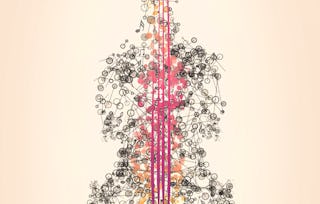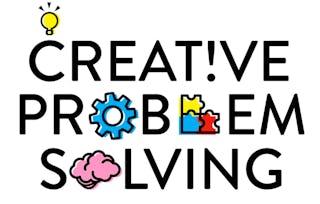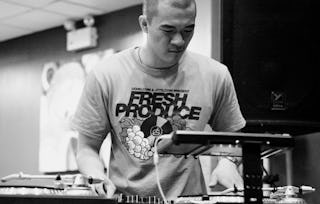Today "genius" is all around us. Celebrities, athletes, child prodigies, even your local Apple employees, all are referred to as geniuses. But are they? And if not these individuals then who? In this course, Henry L. and Lucy G. Moses Professor of Music Emeritus and author of The Hidden Habits of Genius, Craig Wright, will begin by giving you his definition and prerequisites for true genius and challenge you to come up with your own.

Ends soon: Gain next-level skills with Coursera Plus for $199 (regularly $399). Save now.

(214 reviews)
Recommended experience
What you'll learn
How to create your own definition of genius
The internal and external factors that allow genius to flourish
Which attributes are commonly found in those deemed to be "geniuses"
Skills you'll gain
Details to know

Add to your LinkedIn profile
11 assignments
See how employees at top companies are mastering in-demand skills

There are 4 modules in this course
In Section 1 of Module 1 we determine, jokingly, whether you're a genius or not, provide examples of geniuses as opposed to mere celebrities or prodigies, and discover how what defines "genius" is highly subjective and ever-changing. In Section 2 we look at genius and gender. We discuss the disadvantages that the few female geniuses who do come down to us in our history book faced in their societies. We consider how far we may have progressed and what opposition still remains for women today. In Section 3 we look at genius in relationship to race, geography and society. We talk about the importance of originality in genius and about what societal factors can either encourage or discourage genius.
What's included
13 videos7 readings3 assignments7 discussion prompts
In Section 1 of Module 2 we jump into the age-old question: is it nature or is it nurture? We'll talk about the growing science of epigenetics, the many forms of intelligence and how to best measure each. In Section 2 we consider neoteny in genius. How employing childlike thinking could be a key to genius. We'll also take some time to explore in-depth one of the more famous neotenic geniuses from our past, Mozart. Then we'll move on to discover how we deal with our young prodigies and savants in ways that may actually prevent genius from blossoming. In Section 3 we'll get down to brass tacks and talk about money's role in genius. Do you need to be rich to be a genius? What should geniuses do with their money once they accumulate it?
What's included
12 videos2 readings3 assignments7 discussion prompts
Module 3 delves into the enablers of genius to see what drives them and what allows them to achieve such singular greatness in their lifetimes. Section 1 entitled "curiosity and a tolerance for risk," may go a long way to explaining the just-asked question. We'll study perhaps the single most curious person in history, the great, Leonardo da Vinci, and look in on a typical day in his life. In Section 2 we'll move on to explore creativity and great polymaths in history. We'll take time to examine how they think and where their ideas came from. In Section 3 we'll talk passions; the inevitable endpoint for anyone with great curiosity, is passion. Once these polymaths stumble on something of interest, they become passionate, and passion can carry them along some unusual paths. We'll explore a few of them.
What's included
12 videos3 readings3 assignments7 discussion prompts
In Module 4 we start by looking at morality and genius. As you might expect by now, they do not always go hand in hand. We'll explore a few examples of the rebellious nature of most geniuses, and the personally destructive nature of several others, and we will consider the relationship between genius and so-called "disabilities." Finally, we'll step back and ask the following question: To what degree are we as individuals willing to tolerate bad behavior and, indeed, personal destruction, in order to benefit from the creative innovation that the genius brings to society? Finally, we end by suggesting the personal and societal implications inherent in the study of genius. We'll send you off by suggesting how you, and society, might employ the knowledge you've gained as you have explored "The Nature of Genius."
What's included
6 videos2 readings2 assignments6 discussion prompts
Instructor

Offered by
Explore more from Psychology
 Status: Preview
Status: PreviewMichigan State University
 Status: Preview
Status: PreviewThe Hong Kong University of Science and Technology
 Status: Preview
Status: PreviewUniversity of Minnesota
 Status: Free Trial
Status: Free Trial
Why people choose Coursera for their career




Learner reviews
214 reviews
- 5 stars
85.51%
- 4 stars
12.61%
- 3 stars
1.40%
- 2 stars
0%
- 1 star
0.46%
Showing 3 of 214
Reviewed on Nov 2, 2022
An amazingly eye opening class that I will gladly recommend anyone should take. For our universe to function the best way it was designed, there must be synergy between human and economic capital.
Reviewed on Nov 21, 2022
The Nature of Genius was an interesting course and I would recommend it if you want to learn more about genius and its various machinations.
Reviewed on Dec 11, 2022
Amazing course! Professor Wright is brilliant. This course is fine tuned to understanding the genius mind. Highly Recommend.
Frequently asked questions
To access the course materials, assignments and to earn a Certificate, you will need to purchase the Certificate experience when you enroll in a course. You can try a Free Trial instead, or apply for Financial Aid. The course may offer 'Full Course, No Certificate' instead. This option lets you see all course materials, submit required assessments, and get a final grade. This also means that you will not be able to purchase a Certificate experience.
When you purchase a Certificate you get access to all course materials, including graded assignments. Upon completing the course, your electronic Certificate will be added to your Accomplishments page - from there, you can print your Certificate or add it to your LinkedIn profile.
Yes. In select learning programs, you can apply for financial aid or a scholarship if you can’t afford the enrollment fee. If fin aid or scholarship is available for your learning program selection, you’ll find a link to apply on the description page.
More questions
Financial aid available,





